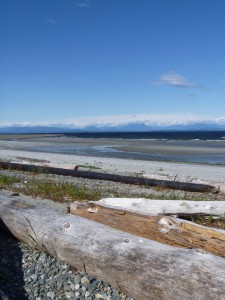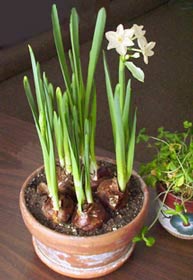
I agree with Carl Reiner who once said he found snow to be an unnecessary freezing of water. Nevertheless, when last week’s storm dumped a foot and a half of snow on our lawn, I tried to embrace it. And embrace it I did, for about two days. Just long enough to wrap up a deadline, read a book, clean the house and surf warm vacation spots. Then I was ready to get outside and walk. To get outside, period. But, alas, the snow kept falling.
So, I did what any writer worth her sand and salt would do in my position – I googled snow references in literature. It helped. For one thing, it kept me from looking outside and shivering. For another, it reminded me that some people do find snow beautiful.
In case you’re in the midst of a hellsnowscape, here are some lovely passages to help you see the beauty.
“I wonder if the snow loves the trees and fields, that it kisses them so gently? And then it covers them up snug, you know, with a white quilt; and perhaps it says, “Go to sleep, darlings, till the summer comes again.” Lewis Carroll, Alice’s Adventures in Wonderland & Through the Looking-Glass
“The snow did not even whisper its way to earth, but seemed to salt the night with silence.” Dean Koontz, Brother Odd: An Odd Thomas Novel

“The old curly birches of the gardens, all their twigs laden with snow, looked as though freshly decked in sacred vestments.” Leo Tolstoy, Anna Karenina
“It snowed all week. Wheels and footsteps moved soundlessly on the street, as if the business of living continued secretly behind a pale but impenetrable curtain. In the falling quiet there was no sky or earth, only snow lifting in the wind, frosting the window glass, chilling the rooms, deadening and hushing the city.” Truman Capote, American Fantastic Tales: Terror and the Uncanny from the 1940’s Until Now
“It snowed last year too: I made a snowman and my brother knocked it down and I knocked my brother down and then we had tea.” Dylan Thomas, A Child’s Christmas in Wales
“I remember that winter because it had brought the heaviest snows I had ever seen. Snow had fallen steadily all night long and in the morning I woke in a room filled with light and silence, the world seemed to be held in a dream-like stillness. It was a magical day. And it was on that day I made the snowman.” Raymond Briggs, The Snowman

“Snow flurries began to fall and they swirled around people’s legs like house cats. It was magical, this snow globe world.” Sarah Addison Allen, The Sugar Queen
“A snowball in the face is surely the perfect beginning to a lasting friendship.”
Markus Zusak, The Book Thief

“A few light taps upon the pane made him turn to the window. It had begun to snow again. He watched sleepily the flakes, silver and dark, falling obliquely against the lamplight. The time had come for him to set out on his journey westward. Yes, the newspapers were right: snow was general all over Ireland. It was falling on every part of the dark central plain, on the treeless hills, falling softly upon the Bog of Allen and, farther westward, softly falling into the dark mutinous Shannon waves. It was falling, too, upon every part of the lonely churchyard on the hill where Michael Furey lay buried. It lay thickly drifted on the crooked crosses and headstones, on the spears of the little gate, on the barren thorns. His soul swooned slowly as he heard the snow falling faintly through the universe and faintly falling, like the descent of their last end, upon all the living and the dead.” James Joyce, The Dead
“There’s just something beautiful about walking on snow that nobody else has walked on. It makes you believe you’re special, even though you know you’re not.” Carol Ritka Brunt, Tell the Wolves I’m Home

And finally, to end on a hopeful note, here’s my (current) favorite passage about snow: “The sight of snow made her think how beautiful and short life is and how, in spite of all their enmities, people have so very much in common; measured against eternity and the greatness of creation, the world in which they lived was narrow. That’s why snow drew people together. It was as if snow cast a veil over hatreds, greed, and wrath and made everyone feel close to one another.” Orhan Pamuk, Snow





Comments